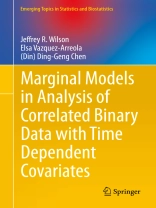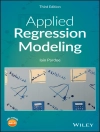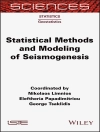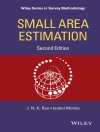This monograph provides a concise point of research topics and reference for modeling correlated response data with time-dependent covariates, and longitudinal data for the analysis of population-averaged models, highlighting methods by a variety of pioneering scholars. While the models presented in the volume are applied to health and health-related data, they can be used to analyze any kind of data that contain covariates that change over time. The included data are analyzed with the use of both R and SAS, and the data and computing programs are provided to readers so that they can replicate and implement covered methods. It is an excellent resource for scholars of both computational and methodological statistics and biostatistics, particularly in the applied areas of health.
قائمة المحتويات
1. Introduction to Binary Regression Models.- 2. Generalized Estimating Equations Binary Models.- 3. Lai and Small Models for Time-Dependent Covariates.- 4. Lalonde, wilson, and Yin Models for Time-Dependent Covariates.- 5. Irimata, Broatch, and Wilson Models for Time-Dependent Covariates.- 6. Bayesian GMM to IBW Method of Analysis.- 7. Models for Joint Responses for Time-Dependent Covariates.- 8. Other Models for Time-Dependent Covariates.
عن المؤلف
Dr. Jeffrey Wilson is associate professor of statistics and biostatistics at Arizona State University, where he has served as director of the School of Health Management and Policy at the W. P. Carey School of Business, and as director and co-director of the biostatistics core at the NIH Center at Banner/Arizona Alzheimer’s Consortium. Dr. Wilson is the statistics associate editor for The Journal of Minimally Invasive Gynecology, as well as former chair of the editorial board for the American Journal of Public Health. His research experience includes PI/co-PI roles with the National Science Foundation, the United States Department of Agriculture, the National Institute of Health, the Arizona Department of Health Services, and the Arizona Disease Research Commission. He has published more than 65 articles in prominent academic journals, and has consulted with pharmaceutical companies and hospitals while representing them before the FDA and other federal government healthcare agencies.
Ms. Elsa Vazquez is a Ph D candidate in statistics at Arizona State University. She holds a BS in applied mathematics from Juarez University of the State of Durango, and a MS in mathematics from Arizona State University. Ms. Vazquez works as a statistician at the Center for Applied Behavioral Health Policy, where she collaborates with its research and evaluation team. She has served as a faculty associate at Arizona State University’s School of Public Affairs, teaching applied statistics, and as a research assistant with the Arizona Alzheimer’s Disease Center/Banner Alzheimer’s Institute. Her research interests include statistical models for binary correlated data, Bayesian statistics, and their applications to public and behavioral health settings. Dr. Ding-Geng Chen is a fellow of the American Statistical Association and the Wallace Kuralt distinguished professor at the University of North Carolina at Chapel Hill, as well as the South Africa DST-NRF-SAMRC, SARCh I in Biostatistics (Tier 1). He was a professor in biostatistics at the University of Rochester and the Karl E. Peace endowed eminent scholar chair in biostatistics at Georgia Southern University. He is also a senior statistics consultant for biopharmaceuticals and government agencies with extensive expertise in Monte-Carlo simulations, clinical trial biostatistics and public health statistics. Dr. Chen has more than 150 refereed publications. He has co-authored and co-edited 23 books on clinical trial methodology, meta-analysis and public health applications, and he has been invited nationally and internationally to give speeches on his research.












